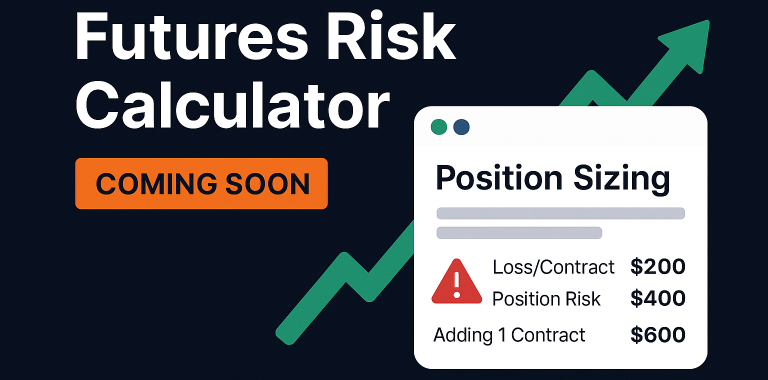Choosing the Right Trading Platform
Your trading platform is where you’ll spend hours analyzing markets and executing trades. A slow, unreliable, or confusing platform can cost you money through missed opportunities, poor execution, or costly mistakes. The right platform becomes invisible – it simply works when you need it to.
What Makes a Great Trading Platform?
The best trading platforms combine speed, reliability, and intuitive design with powerful features that match your trading style. They should execute your strategy flawlessly, not force you to adapt to their limitations.
Essential Platform Features
- Fast execution – Orders filled at requested prices without delays
- Real-time data – Accurate quotes and instant chart updates
- Intuitive interface – Find what you need without hunting through menus
- Reliable uptime – Platform stays online during volatile markets
- Multi-device access – Trade from desktop, mobile, and web browsers
- Risk management tools – Stop losses, position sizing, and alerts
Popular Trading Platforms
MetaTrader 4/5
- Industry standard for forex and CFDs
- Expert Advisor support for automated trading
- Extensive indicator library and custom tools
- Free with most forex brokers
TradingView
- Web-based platform with social features
- Excellent charting and analysis tools
- Works with multiple brokers
- Great for all markets and timeframes
Interactive Brokers TWS
- Professional-grade platform for serious traders
- Advanced order types and risk management
- Global market access in one platform
- Complex but powerful feature set
thinkorswim (TD Ameritrade)
- Comprehensive US market platform
- Advanced options trading capabilities
- Paper trading and backtesting tools
- Free education and support resources
NinjaTrader
- Popular with futures and forex traders
- Advanced charting and market analysis
- Strategy development and backtesting
- Lifetime license available
cTrader
- Modern alternative to MetaTrader
- Institutional-quality execution
- Advanced order management
- Clean, intuitive interface
Platform Types
Desktop Platforms:
- Most powerful and feature-rich
- Faster execution and data processing
- Multiple monitor support
- Offline chart analysis capabilities
Web Platforms:
- Access from any browser
- No software installation required
- Cross-platform compatibility
- Good for basic trading needs
Mobile Apps:
- Trade on the go
- Essential for monitoring positions
- Should mirror desktop functionality
- Push notifications for alerts
Key Features Comparison
Order Types:
- Market orders – Immediate execution at current price
- Limit orders – Execute only at specified price or better
- Stop orders – Trigger market order when price reached
- OCO (One Cancels Other) – Advanced order management
- Trailing stops – Automatic stop loss adjustment
Analysis Tools:
- Technical indicators – 100+ built-in studies
- Drawing tools – Trendlines, Fibonacci, patterns
- Multiple timeframes – From tick charts to monthly
- Economic calendar – News and events integration
- Market scanners – Find trading opportunities
Risk Management:
- Position sizing calculators – Determine appropriate trade size
- Risk/reward analysis – Evaluate trade potential before entry
- Portfolio overview – Monitor total account exposure
- Margin requirements – Real-time leverage calculations
- Automated alerts – Price and indicator notifications
For Different Trading Styles
Day Traders Need:
- Sub-second order execution
- Level 2 market data
- Hotkey trading capabilities
- Advanced charting with tick data
- Direct market access (DMA)
Swing Traders Want:
- Reliable alert systems
- Good fundamental analysis tools
- Mobile access for monitoring
- Multiple market coverage
- Pattern recognition features
Long-term Investors Prefer:
- Portfolio management tools
- Research and analysis integration
- Dividend tracking and reinvestment
- Tax reporting capabilities
- Simple, clean interfaces
Scalpers Require:
- Ultra-fast execution speeds
- One-click trading
- Minimal latency connections
- Advanced order management
- Real-time P&L tracking
Platform Costs
Free Platforms:
- Usually provided by brokers
- Basic functionality included
- May have limited features or data
- Often subsidized by trading commissions
Premium Platforms:
- Monthly subscription fees ($50-500+)
- Professional-grade features
- Real-time data feeds included
- Advanced analysis and automation
Data Feed Costs:
- Real-time market data subscriptions
- Exchange fees for professional use
- Historical data access
- News and research feeds
Testing and Evaluation
Free Trial Checklist:
- Test order execution speed during busy markets
- Verify all features work as advertised
- Check platform stability under load
- Evaluate customer support responsiveness
- Compare with your current platform
Red Flags to Avoid:
- Frequent disconnections or freezes
- Slow order execution or requotes
- Hidden fees or surprise charges
- Poor customer support
- Outdated or clunky interfaces
Making Your Choice
Start with platforms offered by your broker, then explore standalone options if needed. Most traders find success with simple, reliable platforms rather than feature-heavy systems they never fully utilize.
Next Steps Ready to compare specific platforms? Check our detailed reviews covering execution quality, feature sets, costs, and real user experiences to find the best match for your trading approach.

